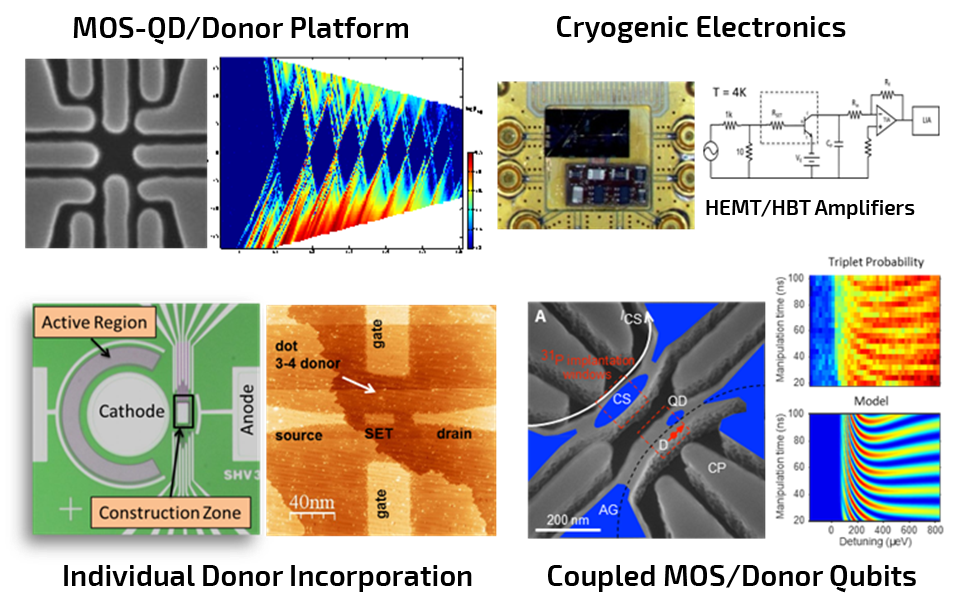The semiconductor qubit group at Sandia conducts experimental and theoretical research in multiple material systems, including silicon MOS (SiMOS), gallium arsenide (GaAs), silicon-germanium (SiGe), and germanium (Ge).
The semiconductor qubit program dates to 2008 when the first major internal study of SiMOS qubits and quantum architectures commenced. The group leverages the in-house fabrication facilities at MESA and the Center for Integrated Nanotechnologies for production of various qubit systems. Sandia has active collaborations with numerous academic institutes and industrial partners, and leverages the expertise of several internal quantum groups.
Areas of Research
The program’s research spans multiple areas:
- Qubit design, fabrication, test, and analysis.
- Analysis of multiple qubit systems: single and multiple electron spins, hole spins, phosphorous nuclear spins, and “hybrid” systems (e.g., electron-nuclear spin systems).
- Theory and modeling, ranging from microscopic physics models to higher-level, multiqubit analyses.
- Analysis and theory development for circuit-based and adiabatic architectures using semiconductor qubits.
- Development of software modeling tools.
- Control electronics and associated software control systems, including cryogenic amplification.
- Experimental characterization of physical phenomena relevant to spin qubits and semiconductor quantum systems.
Featured Projects
Sandia is engaged in two projects under the Laboratory for Physical Sciences’ (LPS) Qubit Collaboratory program:
A novel, flip-chip system enabling rapid fabrication and test of new qubit designs. We are collaborating with the University of Texas at El Paso under this effort.
In this partnership with Intel, we are employing Intel’s Tunnel Falls chip to test and compare different qubit encodings and develop new qubit operating modes.
Theory and modeling to accelerate semiconductor based QIP. We are collaborating with the University of Rochester, the University of California Los Angeles, and the University of New Mexico.

MOCHA is a theory effort, in collaboration with several academic groups, to (1) advance understanding of the origins of charge noise in semiconductor-based QIP systems, (2) improve physical modeling-based device characterization and provide experimental support for error attribution, and (3) advance theoretical methods for accurately and faithfully modeling multi-qubit systems.
